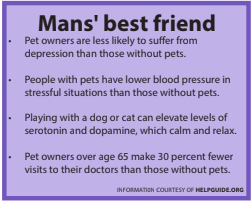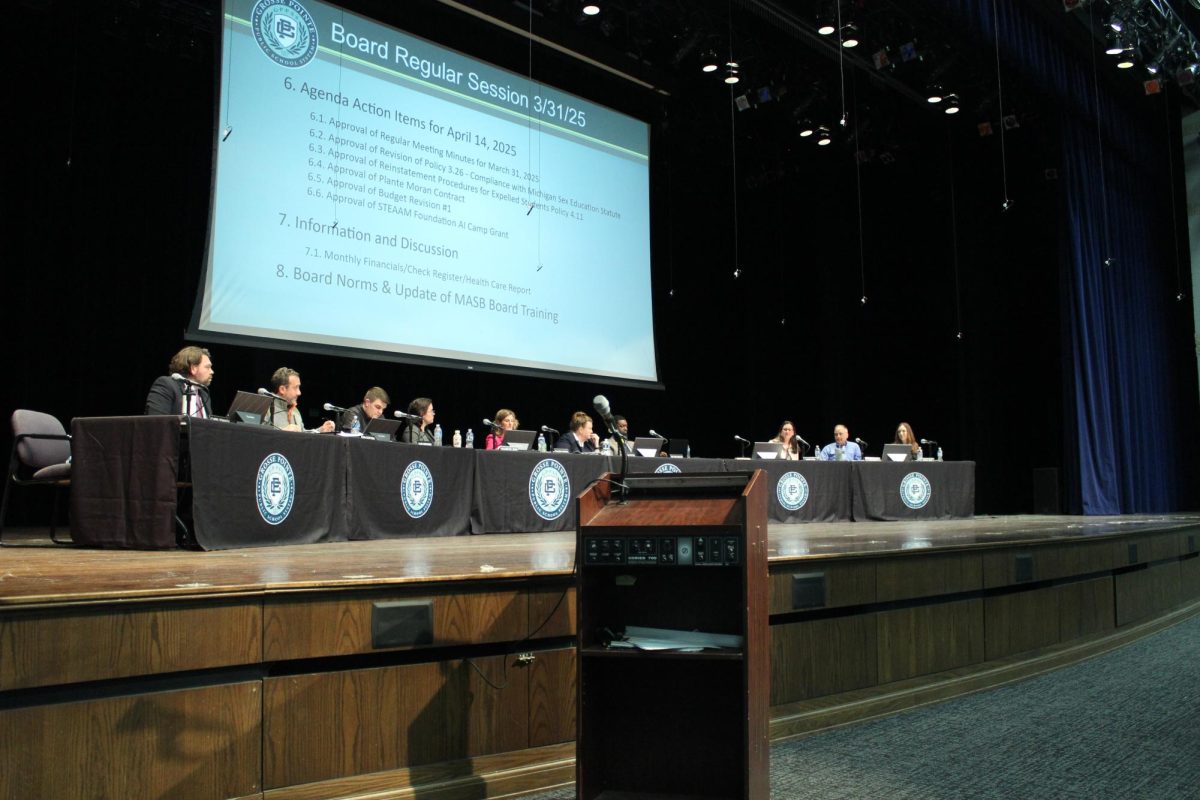The Pet Effect: How animals can help alleviate transition-induced stress
April 27, 2020

Around the globe, the lives of billions of people have been turned upside down by the coronavirus. The stay-at-home order has caused a major change in daily lives, and according to Depression.org, the “difficulty, challenges and conflict that come along with these life changes can contribute to depression and anxiety.” When feelings like this occur, finding a solution while stuck in the house can seem challenging, but there might be something- or someone- right at home who can help.
The Anxiety and Depression Association of America (ADAA) found that “pets and therapy animals can help alleviate stress, anxiety, depression and feelings of loneliness and social isolation.”
Lucy Roraff ’21 said that since the transition to online school, she has noticed an increase in her stress levels, and having her pets around has helped lower it significantly.
“Spending time with them gives my brain a break and a chance to regroup, to reevaluate what was stressing me out,” Roraff said. “I see how happy and carefree they are, and it rubs off on me. It’s like I can feel my heart rate going down.”
Roraff said she does different things with her dogs to alleviate her “completely expected” stress during this abnormal time.
“After spending time focusing on school, I take my dogs for a lot of walks,” Roraff said. “Between them and the fresh air, I always come home feeling more relaxed. I don’t think anyone was prepared or able to easily go from normal life to being confined to their home every day, and it’s hard to adjust. Even just sitting there petting my dogs can help me feel better from all that.”
Counselor Beth Walsh-Sahutske is currently earning her certification in Animal Assisted Therapy. She said there are positive effects from various types of contact with animals during times of difficulty, and even the smallest interactions can have a big impact.
“If a student is stressed, engaging with a pet is beneficial,” Walsh-Sahutske said. “Domesticated animals can work to support us by walking, snuggling and spending some quality time (to) reduce stress levels. With remote classes, reading aloud to animals or even teaching them about what you are learning in school or sorting out a confusing concept is really helpful.”
South parent Debbie Bellovich said she sees this firsthand as the owner of certified therapy dog Zia, who she takes to St. John Hospital and various schools, including South, to help people. She said Zia has a noticeable effect on the various people she interacts with.
“I see a lot of effect (from Zia) on patients,” Bellovich said. “I see benefits not only in patients, but also the staff, and all of the students. Zia was with a patient once whose heart was racing, and after just a few minutes, her pulse slowed. Slowing down, breathing and connecting with this dog is a little like mediation.”
 Walsh-Sahutske advised that because much of the stress is from the sudden change in routine, it is important to find a new routine to maintain a healthy mind, especially incorporating activities that lower stress levels.
Walsh-Sahutske advised that because much of the stress is from the sudden change in routine, it is important to find a new routine to maintain a healthy mind, especially incorporating activities that lower stress levels.
“Right now our world is very unpredictable and that makes everyone anxious and stressed,” Walsh-Sahutske said. “Build into your schedule time to get away from technology and connect with the natural world. Being out in nature reduces your stress, lowers depression and helps regulate mood. So, even if you don’t have a pet, taking a walk by the water or at the park or starting a small garden can be beneficial.”
For students who don’t have a dog of their own, Bellovich suggests an alternative that can benefit others as well.
“Take the time to play with any dog, because it doesn’t have to be a therapy dog,” Bellovich said. “If you have an elderly neighbor who has a dog that needs to be walked, give them a call. You’re helping yourself and a neighbor.”
Bellovich emphasizes the pertinence of being considerate of others while still keeping in mind that everyone is allowed to be stressed about different things.
“Everyone can mourn the loss of senior year, mourn sports season or even a concert,” Bellovich said. “Be sad about it, be angry about it, but at the same time, you can still be sensitive to other people. Someone’s grief or sadness or anger isn’t more or less important than the next person, and everyone handles their grief in different ways.”














































































